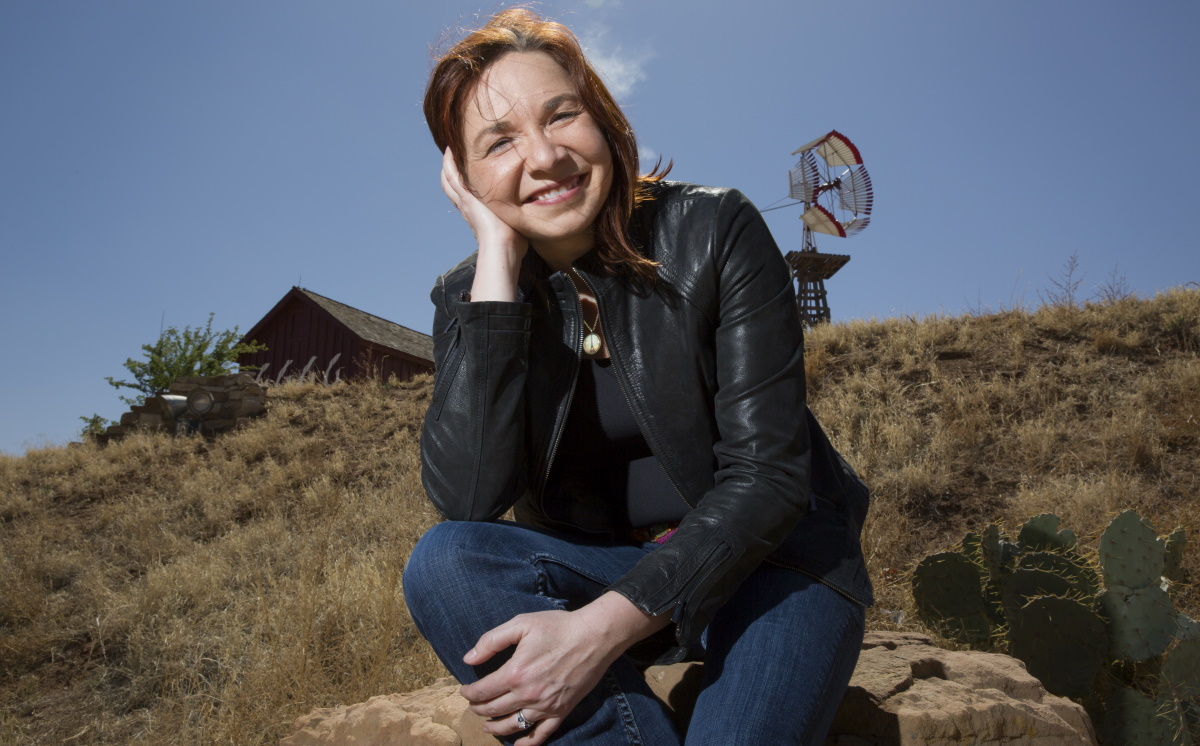
Texas Tech University
Texas is known by many for a history of high-level climate-science denial and state officials’ refusal to adopt policies to limit pollution-caused climate change and to help prepare for its projected threats.
But that’s not the whole story. Texas is simultaneously a state where top government leaders in large cities are charting a different course with climate-conscious planning to reduce greenhouse emissions and gird against impacts. It’s also home to one of the world’s best known and most honored climate-change scientists and communicators – Katharine Hayhoe of Texas Tech University.
Hayhoe was appointed this week to a new position – chief scientist of the Nature Conservancy, an international nonprofit that conserves lands and waters in 72 nations and territories. It’s a role that promises to raise the climate-action proponent’s public profile even more and to amplify her explanations and advice about dealing with a disrupted change.
“As the climate emergency and biodiversity loss continue to affect our health, economies and very way of life, Katharine doesn’t see these challenges as ‘environmental issues,’ but rather, ‘everything issues.’ And she’s right,” said Nature Conservancy CEO Jennifer Morris in an announcement.
“As we race to address these interrelated crises, Katharine’s ability to galvanize audiences beyond the usual environmental bubble is monumental. Her impeccable academic record, energetic leadership, and grounded optimism will help motivate us all into action for this critical decade ahead.”
Hayhoe, a member of Texas Climate News’ volunteer Advisory Board, told the Washington Post that she sees opportunities in the Nature Conservancy’s long history of collaborating with large corporations, but not as an aid in companies’ “greenwashing” of environmental harm they have created:
“I think there’s a lot of people that do want to do the right thing today,” she said, noting that companies, like individuals, might feel a lack of efficacy regarding how to change a business model to account for the environmental damage it causes.
Hayhoe will continue to hold an academic appointment at Texas Tech, located in Lubbock, but will end her work as co-director of the university’s climate center.
Her Nature Conservancy role as chief scientist reflects her prominence in the climate science community – she has served as a lead author of three editions of the federal government’s National Climate Assessment and as co-principal investigator for the Interior Department’s South Central Climate Adaptation Science Center.
Hayhoe’s more localized scientific work in Texas included her co-authorship of Houston’s first Climate Impact Assessment, released last September. Commissioned by Mayor Sylvester Turner’s administration, the document examined 25 indicators of the city’s future climate, such as the numbers of days with 100-degree-plus high temperatures, nights when lows stay above 80 degrees, and measurements of precipitation.
“Climate change is a global challenge,” Hayhoe said upon the Houston report’s release. “But it impacts us locally, affecting our health and our safety, as well as the economy and the city’s infrastructure and public services.”
In addition to being chief scientist at the Nature Conservancy, her work there will include responsibility for its “wider portfolio of global climate advocacy and adaptation work,” the organization said.
Hayhoe initially gained recognition as a skilled public communicator about climate change in large part through her efforts to engage with often skeptical audiences including her fellow evangelical Christians. Her expanding public-outreach work – explaining humans’ causation of climate change and the need for strong climate action – has propelled her to far greater prominence.
Among other honors, she was named climate ambassador last year by the World Evangelical Alliance and a U.N. Champion of the Earth in 2019. She was recognized as one of Time magazine’s 100 Most Influential People in 2014 and as a Leading Global Thinker by Foreign Policy magazine that same year.
Bill Dawson is the founding editor of Texas Climate News.
